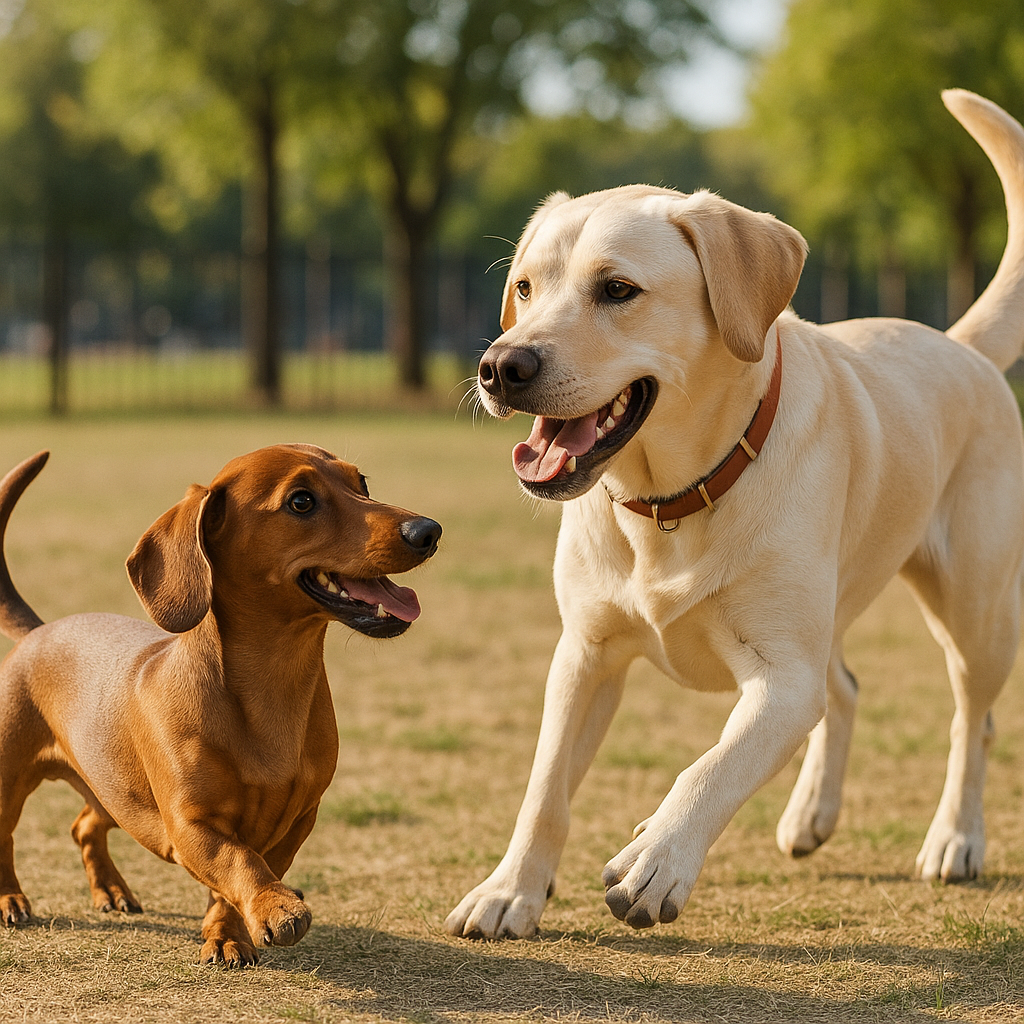Small Dog, Big Personality: The Truth About Living with a Dachshund or Chihuahua
Share
They may fit in your lap, but their personalities fill the entire room. Before you bring home a tiny titan, let's explore the delightful and demanding reality of life with some of the smallest dogs with the biggest characters.

Debunking the "Lap Dog" Myth: The Feisty and Loyal Nature
The term "lap dog" often brings to mind a placid, docile creature. That couldn't be further from the truth for breeds like the Dachshund and Chihuahua. Their histories are not of pampering, but of purpose, which has forged their bold and tenacious spirits.
The Dachshund, with its distinctive long body and short legs, was bred in Germany to hunt badgers. This required fearlessness, determination, and a stubborn streak to face down a formidable opponent underground. That bravery translates into a modern-day companion who is confident, often comical, but will not hesitate to stand its ground. Their loyalty is immense, but it's paired with an independent mind that requires a patient and consistent owner.
Similarly, the Chihuahua possesses a personality that far outweighs its tiny frame. Often described as having a "big dog in a small body" syndrome, they are fiercely loyal to their chosen person, creating an unbreakable bond. This devotion can sometimes manifest as protectiveness, making them excellent, albeit tiny, watchdogs. They are intelligent and alert, constantly observing their surroundings with a sassy confidence that is both endearing and requires careful management.
The Unique Challenges of Training a Small Dog
Training a small dog comes with its own unique set of challenges, often rooted in human behavior. Many owners fall victim to "Small Dog Syndrome," where they inadvertently excuse behaviors—like jumping, barking, or minor aggression—that would be unacceptable in a larger breed simply because the dog is small and "cute."
- Consistency is Key: Small dogs are just as intelligent as their larger counterparts and thrive on structure. It's crucial to establish clear rules and apply them consistently. Don't pick them up to "rescue" them from every situation; teach them how to navigate the world confidently on their own four feet.
- Positive Reinforcement: Due to their sensitive nature, harsh training methods are ineffective and can lead to fear or aggression. Use positive reinforcement techniques like treats, praise, and toys to build a strong, trust-based relationship.
- Potty Training Patience: Smaller dogs have smaller bladders, meaning they need more frequent potty breaks, especially as puppies. Establishing a strict and consistent routine is the fastest path to a house-trained companion.

Socialization: The Key to a Well-Adjusted Small Companion
For a small dog, the world can be a big, intimidating place. Proper socialization from a young age is not just important—it's absolutely critical to prevent fear-based anxiety and aggression. An unsocialized small dog is more likely to react defensively by barking, lunging, or snapping because they feel threatened.
Effective socialization means creating positive, controlled experiences with a variety of people, sounds, and other animals. Avoid overwhelming situations like a chaotic, off-leash dog park initially. Instead, opt for structured puppy classes, playdates with known friendly dogs, and walks in different environments. Teaching your small dog that the world is a safe and interesting place will build their confidence and result in a well-adjusted, friendly companion who is a joy to be around.
In conclusion, while Dachshunds and Chihuahuas are small enough to curl up in your lap, they are not simple accessories. They are intelligent, spirited dogs with deep histories and complex needs. By respecting their big personalities, providing consistent training, and prioritizing early socialization, you will be rewarded with a fiercely loyal and endlessly entertaining companion for years to come.
